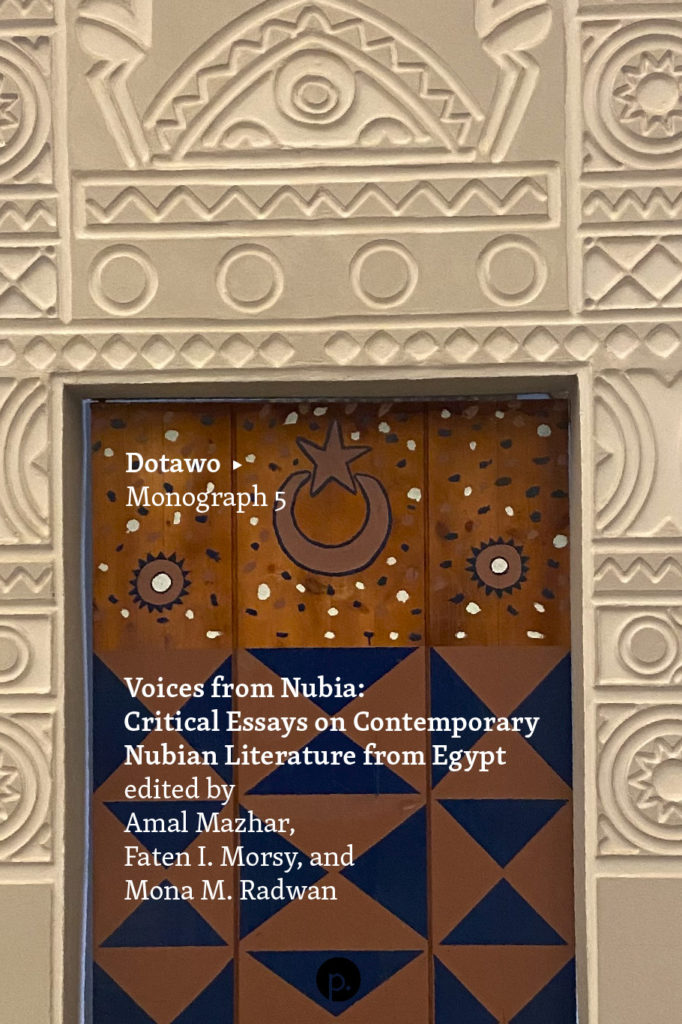The Nubians, the largest ethnic community in Egypt, have seen their ancestral homelands disappear beneath the waters of the Nile from the dawn of the 20th century until 1964. The massive displacement of this population has been the subject of numerous literary works by Nubian writers who seek to save their heritage from oblivion and to preserve their Nubian collective memory. Despite the obvious socio-political renewed interest in Nubia in post-2011 Egypt, we claim that art in general and literature in particular remain the domain in which the problematics of the Nubian issue can be primarily vocalized. We believe that only through a thorough reading and analysis of the literary output of Egyptian Nubians that the complexities of Nubia, its people and culture can find full expression.
The rich literary heritage of contemporary Nubian literature allows for a multiplicity of critiques that makes possible a reading of Nubian literature that crosses the borderlines between literature and history, geography, politics, gender, and ethnicity. The diversity of themes and tropes this first volume on Nubian literature from Egypt presents, reflects a hallmark of Nubian literary output which is generally marked by a common feeling of solidarity around the Nubian cause. The array of critical studies included in the eight chapters covers a multiplicity of approaches: cultural, postcolonial, ecofeminist, and critical race theory. The variety of writers and texts enables the authors to trace the trajectory of Nubian literature from its beginnings and explore the processes that have led to its development across generic boundaries.
The choice of the literary works covering various literary genres reflects this diversity despite an apparent agreed orientation as to how best the Nubian Question could be tackled critically and theoretically. The chapters constitute an attempt to go beyond the dichotomy between the activist Nubian writer who views the Nubian Question as a human rights issue and Arab/Egyptian nationalists who consider the discussion of Nubians as a distinct ethnic group or minority a threat to society’s homogeneity and hence consider it a national security issue. Moreover, the editors ended the book with interviews with three Egyptian Nubian writers belonging to different generations and expressing different views and positions with regards to the Nubian Question. We believe, that since all the contributors to the volume are non-Nubian Egyptian academics, listening to the Nubian voice first-hand have reinforced our assumptions and positions regarding the debates and disputes discussed in the introduction and in most of the chapters in the book.
It is thus hoped that this book on Nubian literature and its contribution to Egyptian and Arabic literature at large would introduce the English-speaking reader to the rich tradition of contemporary Nubian literature from Egypt written in Arabic. On the other hand, as the chapters highlight the Question of Nubia through studying its contemporary literature, the book forces the Egyptian/Arab reader to question some of the most cherished assumptions and ingrained ideas about the nature of culture, history and identity; those ideas and assumptions that were traditionally taken for granted. As such, it has far-reaching implications for how we think about the diverse nature of our societies and nations.

